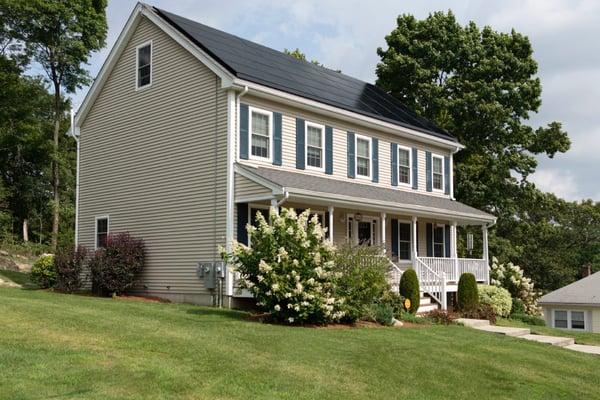HERS stands for Home Energy Rating System. It is the measure of how energy efficient any given home is and gives homebuyers an idea of how much they will spend on utility costs. This is a nationally recognized program used to determine and verify a home’s energy performance.
HERS was developed by the Residential Energy Services Network (RESNET), a recognized national standards-making body for energy efficiency rating and certification systems in the United States. Its purpose is to provide homeowners and home buyers with transparency in regard to the energy efficiency of a home. The rating system is designed to measure how much energy a home uses on a scale of 0 to 150. The lower the number, the more energy efficient a home is.
In order to calculate a HERS index score on a home, RESNET will send out a certified rater. The rater will assess the energy efficiency of the home and assign it a relative performance score. They do this by getting an energy rating on the home and comparing the data to a reference home, which is a designed-model home of similar size and shape to the home they are rating. The reference home will typically have a HERS Index Score of 100, so a score of 70 is 30% more efficient than the reference home.
According to the RESNET website, “A HERS Index Score can tell you so much about a home you are thinking of buying. Heating, cooling and water heating constitute the largest cost of homeownership outside of the mortgage loan.”
As a builder, developer or investor, your end goal is to sell the home you are building. It doesn’t matter what type of build it is - custom, semi-custom, production, fix-flip - the end goal is the same: Sell the home for a profit. So why should you care about HERS ratings? Because it’s an added value you can provide to your prospective buyers.
Benefits of a HERS rated home include better quality of life, lower operating costs, allow for comparative buying based on energy performance, have higher appraised values and lower mortgage default risks. All of these add value to your build, thus raising the price of the home and adding profit to your business.
The green movement is in full swing in the United States. People are recycling, re-using, re-purposing, reducing waste, going digital, composting, anything they can do to reduce trash build up and using up finite resources like oil and coal. They are paying attention to the ozone, global warming, ice caps melting. They are tracking steps, heart rates, eating healthier, exercising more and in general being more environmentally and personally conscious. The more self-aware people become, the more they realize their impact on the Earth.
As these realizations come full-circle, it stands to reason that their expectations would be for the construction industry to follow suit. People want energy efficient homes that save them money on a monthly and yearly basis. They work for a better quality of life for themselves and their families, so they want a home that can help them achieve that goal. HERS ratings are one of the ways people can have peace of mind knowing that their home is energy efficient.

Recent Posts
- Spec Home Loans: Complete Guide to Construction Financing for Builders
- Spec Construction Loans: A Spec Line of Credit Is Worth the Paperwork
- Spec Homes and Pre-Sale Homes: Relative Benefits for a Spec Builder
- Spec Construction Success: Insights for the Investor Builder
- How Is a Spec House Different From Other Kinds of House Construction?
